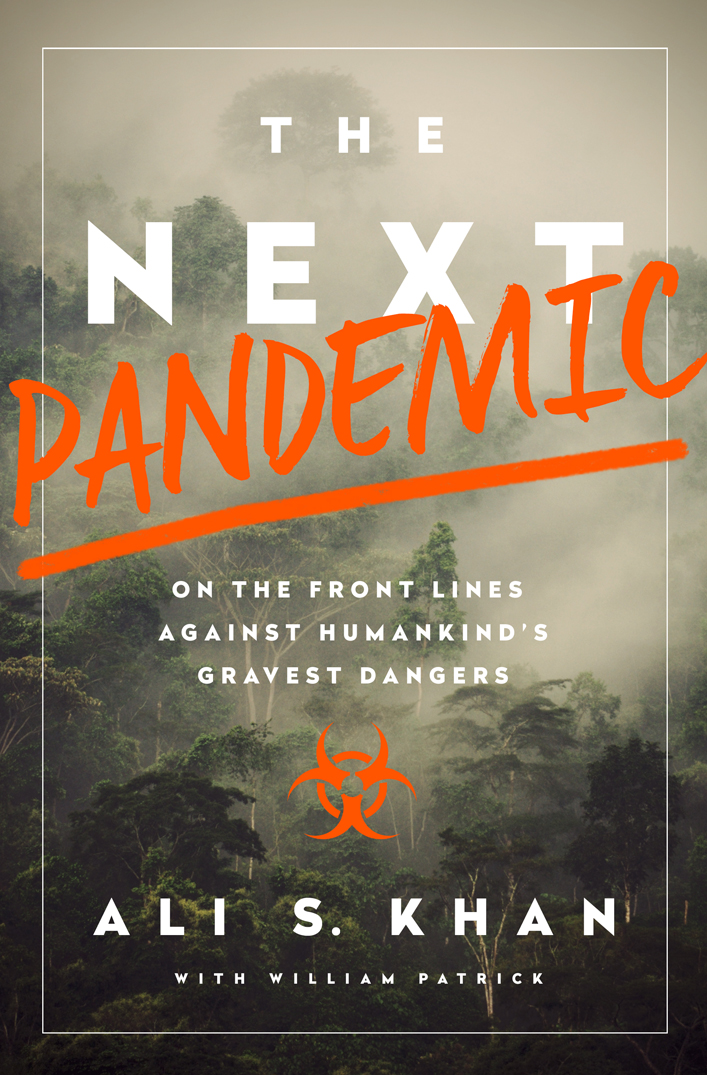
The Next Pandemic
On the Front Lines Against Humankind's Gravest Dangers
در خطوط مقدم علیه خطرات جاذبه انسان گرایان
کتاب های مرتبط
- اطلاعات
- نقد و بررسی
- دیدگاه کاربران
نقد و بررسی

April 25, 2016
As they address startling implications for future public health, Khan, former director of the Office of Public Health Preparedness and Response at the Centers for Disease Control and Prevention, with the aid of writer Patrick, skillfully chronicles the engrossing investigative work spawned by recent pathenogenic outbreaks, including those of ebola, swine flu, and anthrax. Along the way, Khan covers the dizzying technical complexity of the transmission—and sources—of rodent-borne hantavirus; the search for “patient zero” of an ebola outbreak in Zaire in 1995; the containment of the viral disease monkeypox in Kinshasa two years later; the perplexing anthrax outbreak in the wake of the 9/11 terrorist attacks and the hunt for its perpetrator; and efforts to deal with the West Nile virus in New York City. Unraveling the meticulous process of finding a disease’s source, cause, and prevention, Khan alludes to the “powerful mix” of health data, politics, and “anti-science myths” that leave the nation vulnerable. This well-written public health journey is remarkable in no small part because of the signposts Khan finds along the way that the public must heed: “The absence of deeper understanding and consistent attention” to emerging infections and possible pandemics, he writes, “leaves us, as they say along the fault lines in California, just waiting for the big one.”

April 15, 2016
Autobiography of a self-described disease detective whose adventures in public health dramatize the need to modify our approach to emerging infections and possible pandemics.For more than two decades, Khan (Dean, Coll. of Public Health/Univ. of Nebraska), the former director of the Office of Public Health Preparedness and Response at the Centers for Disease Control and Prevention, has dealt with high-profile emergencies at home and abroad. His work as a first responder has taken him from hurricane-devastated New Orleans to the pox-ridden jungles of Zaire, from the hantavirus-infected Four Corners region of the American Southwest to anthrax-contaminated Washington, D.C. While he cites influenza, a highly communicable disease with the capacity to kill millions, as the likeliest cause of a global pandemic, his stories also feature bioterrorism, natural disasters, and viruses such as the ones that caused Severe Acute Respiratory Syndrome (SARS), Middle East Respiratory Syndrome (MERS), Ebola, Rift Valley Fever, West Nile Fever, and even bubonic plague. Khan excels at writing for general readers. Not only does he describe the effects of specific diseases and how he investigates an outbreak and creates a plan to stop it, but he also creates vivid pictures of the setting, the people, and often the politics involved in diagnosis and treatment. The author asserts that we can mitigate, if not prevent, most outbreaks, but only if public health systems are supported in every country and globally through the creation of a United Nations undersecretary for health security. In the final chapter, Khan outlines some of the changes he believes are necessary to move from an emergency response approach to one that emphasizes preparedness and prevention. As he writes, "we cannot excuse infections as simple public health misadventures." The details are sometimes disturbing, but Khan writes with verve, clarity, and a touch of humor.
COPYRIGHT(2016) Kirkus Reviews, ALL RIGHTS RESERVED.

May 15, 2016
Khan takes readers on a world tour chronicling his adventures over the past 20-plus years as a public health first responder investigating infectious disease outbreaks. Whether the epidemic occurred naturally, as was the case with Ebola in Africa, or was the result of bioterrorism, as it was with the anthrax scare in the United States, Khan (dean, Coll. of Public Health, Univ. of Nebraska; former director, Public Health Preparedness & Response, CDC) was on the scene. He describes the events of each episode, while also addressing the causing factors, such as political systems that maintain poverty and social inequality, resulting in situations ripe for disease. Khan's intent may be to alert readers to the sorry state of our global health preparedness and a call for action, but the book is also filled with enthralling accounts of exploits. He advocates for the use of hard data to control outbreaks and warns of the role that climate change will inevitably play in the spread of disease globally. VERDICT Hard-core investigative science that reads like a page-turning travelog, this title will appeal to science buffs and general interest readers alike.--Ragan O'Malley, Saint Ann's Sch., Brooklyn
Copyright 2016 Library Journal, LLC Used with permission.

























دیدگاه کاربران